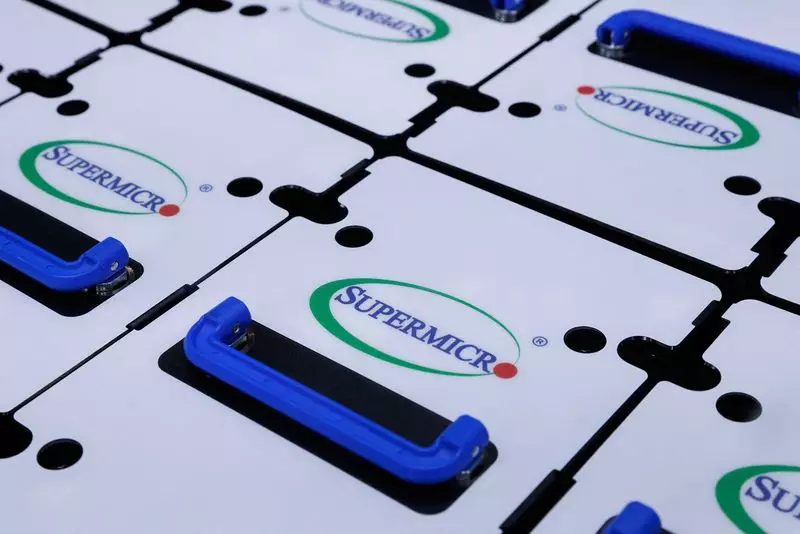Super Micro Computer, once considered a highflier in the AI industry, faced a significant setback with a 14% drop in its shares during premarket trading. This decline came as a result of a faster-than-expected contraction in the company’s gross margin. The adjusted gross margin for the fourth quarter plummeted to 11.3% from 17% a year earlier. This fall in margin far below analysts’ average estimate of 14.1% raised concerns about the company’s financial health and operational efficiency.
One of the major factors contributing to the decline in Super Micro’s gross margin was competitive pricing. The company had to lower prices for its servers to compete with rivals such as Dell and HP Enterprise. This move, while aimed at expanding market share and staying ahead in the competition, backfired and negatively impacted the company’s profitability. Additionally, the company seemed ill-prepared to deal with the high demand for its products, further exacerbating the margin pressure.
Super Micro also faced challenges related to higher supply chain costs and a tight inventory of key components. While CEO Charles Liang reassured investors that margins would return to a normal range by the end of fiscal 2025, the company’s forecast of first-quarter profit below Wall Street targets raised concerns about its future profitability. Despite these challenges, some analysts believe that Super Micro is well positioned to continue playing a key role in AI infrastructure support in the long term.
The sharp decline in Super Micro’s shares can be attributed to the overall nervousness in the market and concerns over the company’s earnings miss. With the recent hammering of chip stocks due to concerns about their lofty valuation in a slowing economy, investors reacted strongly to Super Micro’s performance. The stock trades at 17.24 times earnings estimates for the next 12 months, compared to Dell’s 11.07 multiple. Additionally, the company’s announcement of a 10-for-1 stock split effective October 1 added another layer of uncertainty to its future prospects.
The downfall of Super Micro Computer serves as a cautionary tale for companies operating in the highly competitive AI industry. Despite its earlier success and growth, the company’s inability to effectively manage margin pressure, competitive pricing, and supply chain challenges has raised doubts about its long-term sustainability. As the market continues to evolve and demand for AI services grows, it is imperative for companies like Super Micro to adapt and innovate to stay ahead of the curve.

